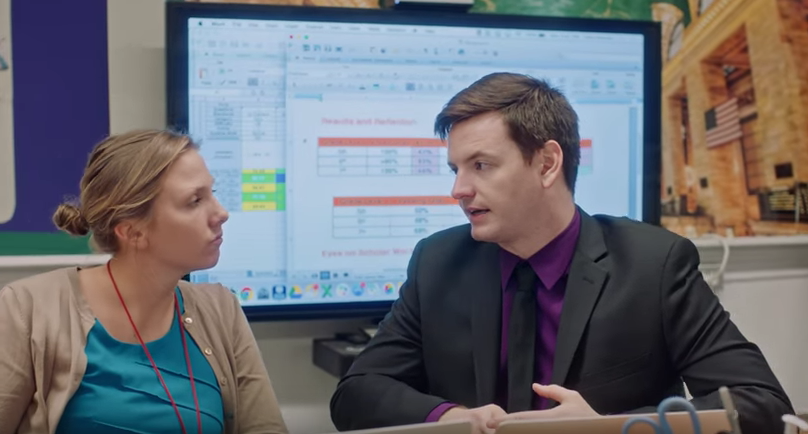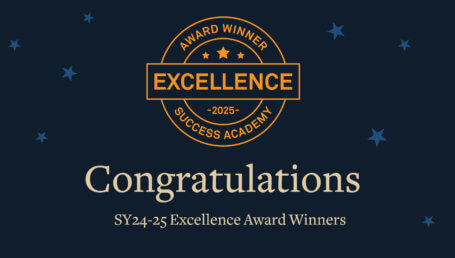
Just a few months ago, I was working as an English teacher at a middle school in Harlem. After four years in the classroom, I was ready for a different challenge. I applied for an assistant principal position at Success Academy because it promised one of the best principal training regimens in the country — a structure now known as the Aspiring School Leaders Program.
Initially, I wasn’t convinced that I would benefit from the principal training at Success. Running a school is challenging, and doing it well requires experience and a set of skills that I didn’t possess at the time. I had a lot of questions: How steep was the learning curve for someone who had never worked at Success and was not familiar with the school culture and curriculum? How much practical hands-on experience along with coaching and support would I actually get? After a year, would I be ready to lead my own school as its principal?
I started as a principal-in-training this past June, and my first sixth months have been challenging — but also transformative and incredibly satisfying. I am surrounded by adults who believe in doing whatever it takes to propel scholars across the finish line. Every day, they inspire and push me to grow and be better, and as a result, I am developing the skill set I need to be a successful principal.
Every day, they inspire and push me to grow and be better, and as a result, I am developing the skill set I need to be a successful principal.
When I first arrived, I didn’t know what great teaching and learning look like across all content areas. I had lived in an ELA bubble for four years, so I knew how to teach kids to read a challenging text and write a compelling essay, and I was comfortable coaching humanities teachers. But coaching a math or science teacher was outside my comfort zone. Thanks to the hours I spent with my school principal and other leaders doing observations, asking questions, and thinking through how to best support teachers to deliver excellent instruction, I was able to overcome that deficit and become a leader who could support all teachers.
At Success, I have also developed my capacity to hold teachers accountable for results. I saw how giving direct feedback helped teachers improve, and I learned to do the same. Now, if I see a teacher who isn’t giving clear directions or enforcing expectations, I don’t wait until the end of class to say something — I give suggestions for improvement in the moment, which is a much more efficient and effective way to improve teacher practice and ensure that students are learning. I also learned from our school principal, Kiah Hufane, who has been my biggest supporter, how to have a difficult conversation with teachers who are not responding to feedback. These talks are never easy, but having Kiah role-play with me and then give me feedback after watching me have such a conversation has helped me become more comfortable with the difficult but necessary task.
At Success, the bar is set high for school leaders. But I have found a multitude of people who at every turn have supported me and pushed me to be a better leader. The work is hard, but every day I wake up feeling empowered because the people at Success are like family — they are your biggest critics, allies, and friends — and because all of us know that the work we do matters.










